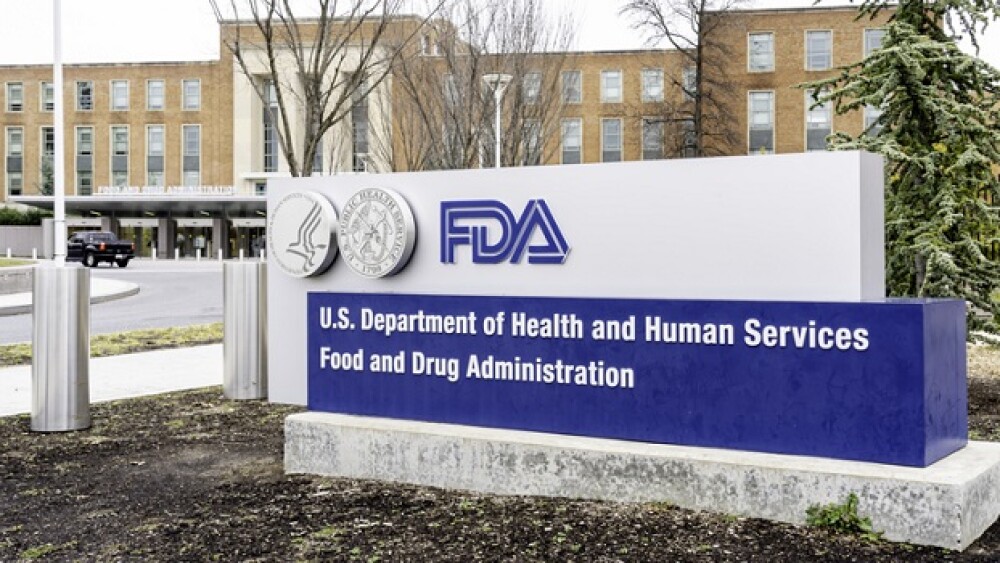Approved in combination with three chemotherapies, Onivyde is the first new frontline treatment option in more than 10 years for adults living with metastatic pancreatic adenocarcinoma.
Pictured: FDA’s signage at its campus in Maryland/iStock, JHVEPhoto
The FDA on Tuesday approved Ipsen’s Onivyde (irinotecan liposome injection), when used in combination with three chemotherapeutic drugs, for the treatment of newly diagnosed patients with metastatic pancreatic adenocarcinoma.
The Onivyde-based regimen, dubbed Nalirifox, is the first frontline approval for metastatic pancreatic adenocarcinoma (mPDAC) in more than 10 years, Julie Fleshman, CEO of patient advocacy group Pancreatic Cancer Action Network, said in a statement.
Christelle Huguet, Ipsen’s executive vice president and head of R&D, said in a statement that Onivyde’s latest approval “can now offer a potential new standard-of-care treatment option with proven survival benefits” for mPDAC patients.
Tuesday’s label expansion is based on data from the Phase III NAPOLI 3 trial, a randomized, open-label pivotal study with 770 mPDAC patients enrolled, all of whom had undergone no prior treatment.
In January 2023, Ipsen posted data from NAPOLI 3, demonstrating that the Nalirifox regimen—which combines Onivyde with fluorouracil, oxaliplatin and leucovorin—boosted overall survival by a statistically significant 17% compared to standard of care, consisting of nab-paclitaxel and gemcitabine. Nalirifox also improved progression-free survival by 31%.
According to Ipsen’s announcement, NAPOLI 3 is the first positive Phase III trial in mPDAC that shows better overall survival compared to the current standard-of-care regimen, and Onivyde is the only FDA-approved treatment regimen to demonstrate efficacy in two Phase III trials across lines of therapy in mPDAC.
Onivyde encloses the chemotherapeutic drug irinotecan in liposomes, which can accumulate inside tumors over time, slowly releasing a toxic payload. By blocking the topoisomerase I enzyme, which is involved in DNA replication and is crucial for cell proliferation, Onivyde exerts its cancer-killing effects.
The FDA first approved Onivyde, in combination with fluorouracil and leucovorin, in 2015 for mPDAC patients who had progressed after gemcitabine-based treatment.
Tuesday’s label expansion continues a winning streak for Ipsen. In June 2023, the biotech secured the support of the Metabolic Drugs Advisory Committee, voting 10–4 to recommend the approval of its fibrodysplasia ossificans progressiva therapy palovarotene. In August 2023, the FDA followed the advice of its external experts and approved the therapy, which now carries the brand name Sohonos.
Ipsen has also been on a clinical roll. In June 2023, the company revealed topline data from its Phase III ELATIVE trial for elafibranor, demonstrating a significantly higher rate of clinically meaningful cholestasis versus placebo in patients with primary biliary cholangitis. Ipsen, along with partner Genfit, followed this up with strong biochemical response data in November 2023.
Tristan Manalac is an independent science writer based in Metro Manila, Philippines. Reach out to him on LinkedIn or email him at tristan@tristanmanalac.com or tristan.manalac@biospace.com.






